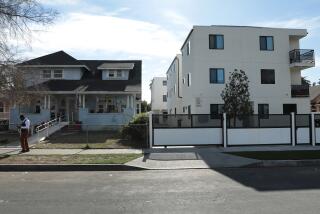Should Los Angeles try again to provide free Wi-Fi service?
Six years ago, Mayor Antonio Villaraigosa announced that he wanted the city to roll out a Wi-Fi network that would offer broadband Internet connections throughout the city.
That project, like so many of Villaraigosa’s ambitious ideas, was scuttled after officials balked at the cost (an estimated $62 million). But pushed by new Councilman Bob Blumenfield, the City Council has revived the idea of a citywide wireless data network. And in Blumenfield’s vision, the service would be free.
The council agreed Wednesday to have the city’s Information Technology Agency draft a request for proposals from potential bidders on the project. The cost, Blumenfield said, would be somewhere between $60 million and $100 million to complete a Wi-Fi network large enough to cover the city.
Since Villaraigosa’s tenure, however, the broadband landscape has changed significantly. Smartphones have proliferated, equipping a growing number of households with increasingly fast and portable wireless connectivity. At the same time, Time Warner Cable, AT&T and other broadband Internet service providers have established thousands of Wi-Fi hotspots around the city that are free for their subscribers to use, and available to non-subscribers for a small fee.
Some telecommunications companies also have fought to stop cities from building broadband networks that would compete with their own offerings. But others have partnered with local governments to provide the service, as AT&T has done in Riverside.
Dennis Johnson, a spokesman for Time Warner Cable, said, “We fully embrace the idea that everyone should have access to the Internet.” But he went on to note that Time Warner offers broadband to every home in its service area, at prices as low as $15 a month. “We do not self-select neighborhoods like some competitors do,” Johnson added, alluding to the more limited broadband offerings of some telephone companies.
Yet the need for connectivity has increased too. There’s no better example of that than the popularity of tablet computers. Some of those can connect to mobile phone companies’ networks, but many rely on Wi-Fi.
What do you think? Should the council try again to blanket Los Angeles in Wi-Fi goodness? Take our uncalibrated poll, leave a comment or do both.
ALSO:
The grim economics of food stamps
A prayer paradox at the Supreme Court
So long, Blockbuster, and thanks for the memories
Follow Jon Healey on Twitter @jcahealey and Google+
More to Read
A cure for the common opinion
Get thought-provoking perspectives with our weekly newsletter.
You may occasionally receive promotional content from the Los Angeles Times.







